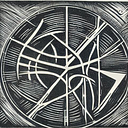Member-only story
A “Laplace’s Demon” for the Age of Quantum Uncertainty
Paradoxes derived from the classic thought experiment shed light on fate, free will, and the fundamental structure of reality

I have always been fascinated by parables of fate and free will, because when done properly they are timeless. The “moral” of these stories is never some minor ethical quandary but a metaphysical truth which applies to all of us, always and forever.
In an ancient parable from the Babylonian Talmud, a man sees Death in a Baghdad market place. When death makes a “threatening gesture,” he takes off toward Samarra to escape. Death later confesses that she didn’t make a threatening gesture at all, but a jolt of surprise.
“I was astonished to see him in Baghdad,” she says. “Because I have an appointment with him tonight in Samarra.”
The moral found here in “The Appointment in Samarra” — as well as in Oedipus Rex, 12 Monkeys, and a myriad of other stories throughout history —is that fate always wins. It is, by definition, inevitable. Our efforts to avoid what has been predestined only bring us more assuredly towards the same end we aim to avert.
Predestination further entrenched itself in our philosophy as the Enlightenment and the advent of modern science gave rise to an increasingly clockwork view of the universe. At one time, philosophers wondered whether free will was compatible with an omniscient God; now they wondered whether free will was compatible with a universe which evolves according physical laws.
This “clockwork” view of the universe — and the scientific optimism which accompanied it — was neatly enshrined by Pierre Simon Laplace in 1814, in a thought experiment we now refer to as “Laplace’s Demon.”
Laplace wrote:
We may regard the present state of the universe as the effect of its past and the cause of its future. An intellect which at a certain moment would know all forces that set nature in motion, and all positions of all items of which nature is composed, if this intellect were also vast enough to submit these data to analysis, it would embrace in a single formula the movements of the greatest bodies of the universe and those of the…
